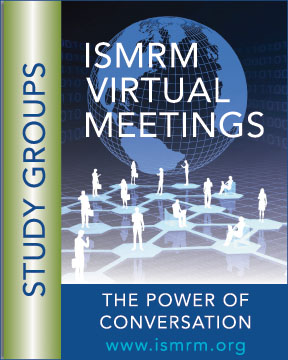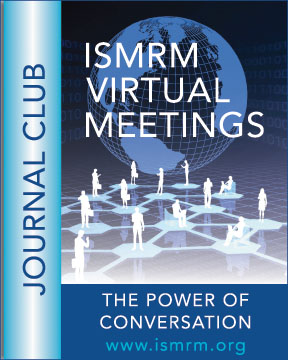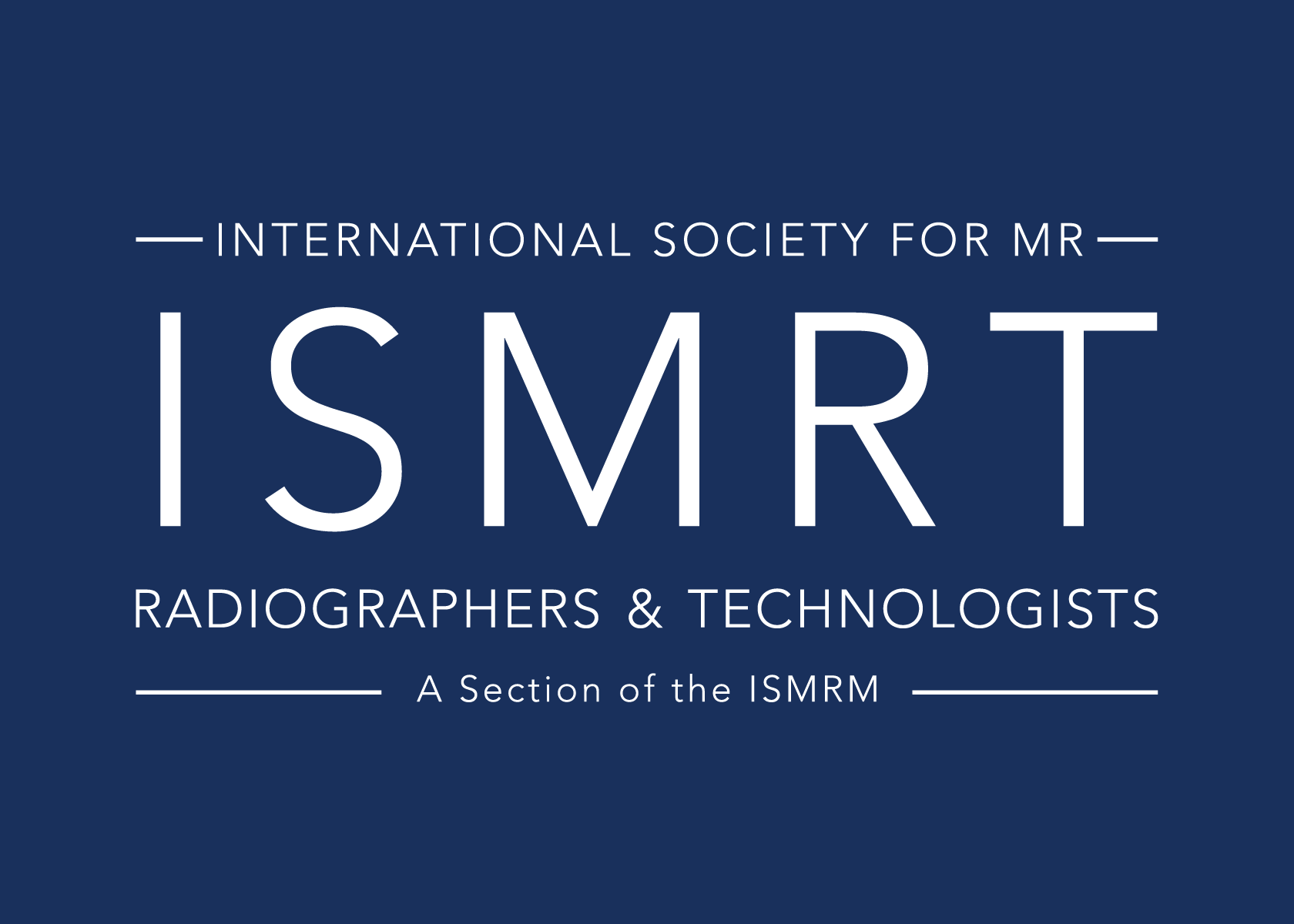🕗 Registration closes the day before a given meeting at 19:00 UTC and is limited to ISMRM & ISMRT members unless otherwise noted.
Our Next Virtual Meeting:
ISMRT Virtual Meeting
Highlights of Cape Town: Preview of 2026 ISMRM-ISMRT Annual Meeting
Registration is FREE. Click here to register now.
Moderator: Jeff Chen, Grad.Dip. MRI, MRSO
AMPC Chair Maila Hughes and Vice Chair Anna Lydon will present an overview of the 2026 Cape Town Annual Meeting, highlighting the program-at-a-glance, special sessions, and the Joint ISMRM/ISMRT Forum. They will also share key information on registration and meeting fees. Stephen Jermy of the University of Cape Town will offer insights into Cape Town, including recommended activities and places to visit. The session will conclude with a live Q&A.
Cape Town Annual Meeting Program Highlights
Maila Hughes, BAppSc(DiagRad), MMagResTech
Philips Australia and New Zealand
North Ryde, NSW, Australia
ISMRM/ISMRT Joint Forum & Meeting registration information
Anna-Maria Lydon, PG.Dip.MRI, BHSc, (DCR)(R)
University of Auckland
Auckland, New Zealand
Things to Do in Cape Town
Stephen Jermy, M.Sc.
University of Cape Town
Cape Town, South Africa
Future Virtual Meetings:
2026 ISMRM AMPC Virtual Meeting
What's Ahead for Cape Town 2026: Science, Sessions, and More!
Registration is FREE. Click here to register now.
Moderator: Kathryn Keenan, Ph.D.
Join us for a preview of our annual meeting in Cape Town—covering named lecturers, plenary sessions, cutting-edge education and science, special sessions, and more. We’ll also highlight member gatherings and share tips on making the most of your time in Cape Town, South Africa.
Mark Griswold, Ph.D.
Case Western Reserve University
Cleveland, OH, USA
Kathryn Keenan, Ph.D.
NIST
Boulder, CO, USA
ISMRM Virtual Meeting
Vendor-Agnostic Pulse Sequence Programming with Pulseq II:
New Capabilities and Emerging Community Projects
Three day virtual meeting:
24-26 February 2026 at 14:00 UTCFind your local time here.
Registration is FREE. Click here to register now.
Moderator: Maxim Zaitsev, Ph.D. and Jon-Fredrik Nielsen, Ph.D.
Pulseq is a vendor-independent MR pulse-sequence programming platform that enables MRI experiments to be designed and analyzed in interactive environments such as MATLAB or Python, and executed on scanner hardware via sequence-agnostic interpreters. In recent years, Pulseq has seen rapid adoption by research groups worldwide, driven by its ability to accelerate MRI method development, enable sequence sharing and collaboration across vendor platforms, and improve the reproducibility of MRI measurements across sites.
This three day course will provide a comprehensive introduction to Pulseq and its ecosystem, covering: (1) core and advanced Pulseq concepts; (2) vendor-specific implementation details and workflows, including hardware and patient safety considerations; (3) representative applications and third-party tools contributed by the user community; and (4) intellectual property and licensing issues relevant to open science.
Working with Pulseq in Matlab
Rita Nunes, D.Phil.
University of Lisbon
Lisbon, Portugal
Working with Pulseq in Python
Patrick Schünke, Dr. rer. nat
NVision Imaging
Ulm, Germany
Pulseq Sequence Tutorials
Qingping Chen, Ph.D.
University Medical Center Freiburg
Freiburg, Germany
MR in Radiation Therapy Study Group Virtual Meeting
Open Science for MR in RT
Registration is FREE for members, US$50.00 for non-members.
Moderators: Petra van Houdt, Ph.D. and Yu-Feng Wang, Ph.D.
Open science promotes transparency, reproducibility, and collaboration by enabling researchers to share data, code, and methodologies openly. This accelerates discovery, reduces duplicated effort, and builds trust in scientific results. These principles can strengthen MRI and radiation therapy research by supporting more robust methods, shared resources, and broader community participation.
In this virtual seminar, we will introduce the fundamentals of open science and discuss practical strategies for incorporating them into research workflows, present an example of an openly available dataset that demonstrates the value of shared resources, and showcase an open-source image reconstruction framework capable of real-time deployment. The session will end with a panel discussion on lessons learned, current limitations, and practical steps to expand the use of open science across the MR in RT community.
The Importance and Benefits of Open Science
Lars Kasper, Ph.D.
University of Toronto
Toronto, ON, Canada
LUND-PROBE: Uniting MRI, Synthetic CT, Dose, Segmentations, and Multi-Observer Insights: A Complete Benchmark for Radiotherapy Applications
Christian Jamtheim Gustafsson, Ph.D.
Lund University
Lund, Sweden
Real-Time Deployment of Open-Source Tools for Image Reconstruction
David E.J. Waddington, Ph.D.
University of Sydney
Everleigh, NSW, Australia
MR in Psychiatry Study Group Virtual Meeting
Neuromelanin-Sensitive MR Imaging and MR Spectroscopy Approaches To Investigate Schizophrenia
Registration is FREE for members, US$50.00 for non-members.
Moderators: Antonia Kaiser, Ph.D., Ralf Mekle, Ph.D.
Schizophrenia is a rather heterogenous, though severe mental disorder characterized variously by hallucinations, delusions, disorganized thinking or behavior, and flat or inappropriate affect, and generally starting in late adolescence or early adulthood. This virtual meeting aims to provide an overview of some of MR imaging and spectroscopy techniques that are used to achieve an enhanced characterization and understanding of the disease.
The dopamine system is the focus of the first talk, where it was recognized that dysregulation of striatal dopamine is a central feature of schizophrenia, yet the substantia nigra (SN), a major source of dopaminergic input to the striatum, has remained relatively understudied. In this presentation, post-mortem and molecular imaging findings are integrated to review molecular alterations of the SN in patients with schizophrenia compared with healthy controls. These alterations underscore the critical role of the SN in striatal hyperdopaminergia and the pathophysiology of schizophrenia. Furthermore, the potential of neuromelanin-sensitive MRI of the SN as a promising biomarker will be highlighted, with potential relevance for predicting treatment response.
A second study was motivated by the observation that dopaminergic dysfunction is a core feature of psychosis, but its relationship with glutamatergic and GABAergic systems early in the illness remains unclear. In this multimodal MRI study, neuromelanin-sensitive MRI and proton MR spectroscopy were combined to examine associations between substantia nigra neuromelanin contrast and striatal and medial prefrontal Glx and GABA in never-medicated first-episode psychosis patients and matched healthy controls. The methods and results of this study will be presented and discussed, highlighting the value of multimodal MR approaches in psychiatric research.
Imaging of the Dopamine System in the Brain in Schizophrenia
Marieke van der Pluijm, Ph.D.
Amsterdam University Medical Center
Amsterdam, The Netherlands
The Relationship Between Neuromelanin, Glutamate, and GABA in First-Episode Psychosis: A Multimodal Magnetic Resonance Imaging Study
Francisco Reyes-Madrigal, M.D., M.Sc.
Laboratory of Experimental Psychiatry, Instituto Nacional de Neurología y Neurocirugía
Mexico City, Mexico
White Matter & Diffusion Study Groups
24 Hours of Microstructure
Click here for more information!
This is a rolling, 24-hour virtual meeting hosted by the ISMRM Diffusion and White Matter Study Groups. On 23 March 2026 (starting 01:00 UTC), three regional blocks repeat a fast, value-packed format: tutorial-style educational lectures (diffusion, WM non‑diffusion, and beyond‑brain); “Meet the Teachers” Q&A; trainee orals and power pitches; themed poster discussions; and a social. Whether you build methods or apply them in the lab or clinic, come for practical education, fresh trainee science, and time‑zone-friendly networking. Talks on Zoom; posters/Q&A/socials in gather.town. Join the block/s that fit your day.
MR Engineering Study Group Virtual Meeting
Hyperpolarized MRI System Tutorial
Registration is FREE for members, US$50.00 for non-members.
Moderators: Hui Han, Ph.D., Jason Stockmann, Ph.D., Xin Zhou, Ph.D.
The MR Engineering Study Group presents the hyperpolarized MRI system tutorial. The speakers will cover RF coils for multinuclear applications, Xenon-129 hyperpolarized MRI theory and techniques, and making the hyperpolarization transportable by covering hardware design to sample optimization.
RF Coils for Multinuclear Applications
Ryan Brown, Ph.D.
NYU Grossman School of Medicine
New York, NY, USA
Spin Hyperpolarization of Xenon-129: Theory, Techniques, and MRI
Haidong Li, Ph.D.
University of Chinese Academy of Sciences
Wuhan, China
How To Make Hyperpolarization Transportable: From Hardware Design to Sample Optimization
Andrea Capozzi, Ph.D.
EPFL
Lausanne, Switzerland
Check back frequently for more details and meeting announcements.
Looking for past Virtual Meetings?
Curious what topics have been covered before?
Go to the Virtual Meeting Archive
🕑 A NOTE ABOUT TIME 🕖
All times on this page are shown first in UTC, followed by your local time zone. This conversion is done in-browser; no location information is sent to ISMRM. If the local times are inaccurate, check your device's time zone settings:
If the you see "Invalid date" messages, your browser may be blocking the javascript used to make the time conversion. Please either turn off your script blocker or whitelist ismrm.org.
The ISMRM is accredited by the Accreditation Council for Continuing Medical Education (ACCME) to provide continuing medical education for physicians.
The International Society for MR Radiographers & Technologists (ISMRT), A Section of the ISMRM, is recognized by the American Registry of Radiologic Technologists (ARRT) as a Recognized Continuing Education Evaluation Mechanism (RCEEM).
The ISMRM is committed to providing opportunities for its members to connect, engage and develop. As an ISMRM member, you have access to:
 Study Group Virtual Meetings:
Study Group Virtual Meetings:
A platform for our 34 study groups, established to foster interaction among members with a common interest in topical and active areas of MR. Topics for discussion come from the study groups with discussion and debate promoted by expert moderators, with contributions from the virtual audience. Registration is open to all ISMRM & ISMRT members, with priority given to members of the respective Study Group.
Journal Club Virtual Meetings:
 A platform for a dynamic, international, cross-cutting journal club moderated by experts in the field. The papers for discussion come from the Society’s two journals with live access to the authors. Discussion and debate are promoted by expert moderators, with contributions from the virtual audience. Registration is open to all ISMRM & ISMRT members.
A platform for a dynamic, international, cross-cutting journal club moderated by experts in the field. The papers for discussion come from the Society’s two journals with live access to the authors. Discussion and debate are promoted by expert moderators, with contributions from the virtual audience. Registration is open to all ISMRM & ISMRT members.

